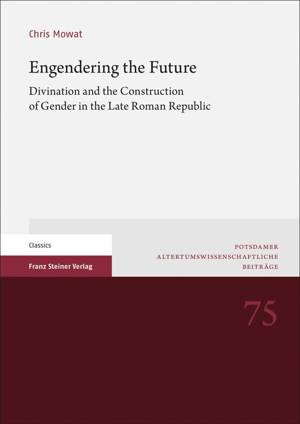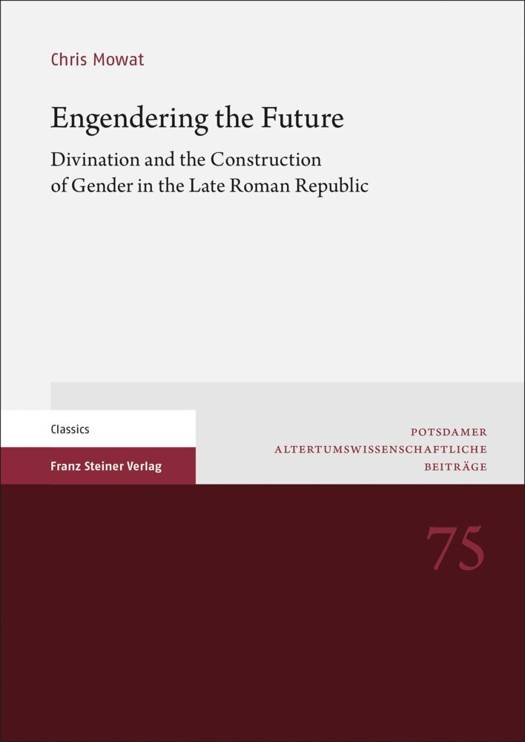
- Afhalen na 1 uur in een winkel met voorraad
- Gratis thuislevering in België vanaf € 30
- Ruim aanbod met 7 miljoen producten
- Afhalen na 1 uur in een winkel met voorraad
- Gratis thuislevering in België vanaf € 30
- Ruim aanbod met 7 miljoen producten
Zoeken
Engendering the Future
Divination and the Construction of Gender in the Late Roman Republic
Chris Mowat
€ 145,95
+ 291 punten
Omschrijving
Chris Mowat brings together understandings of divinatory traditions and of gender in the Late Roman Republic to consider how each influenced the performative nature of the other. The identity of the divinatory actor(s) is an important element that plays a part in confirming the correctness of interpretations, and as such gender is an important aspect in understanding divination within Roman religious traditions. Beginning with Cicero's "On Divination", Mowat's reading shows how gender is axiomatic to - but never explicit in - the opposing viewpoints presented. Four extended case studies follow, each focusing on a specific divinatory tradition: the Sibylline Books, as written prophetic guides for the State; the portentous nature of the birth of an intersex child under the Republic, and the ritual response it garnered; the sacrificial specialism of individual diviners, specifically through the story of a woman named Martha; and, finally, the construction of prophetic dreaming in the Roman Republic. Together, these studies demonstrate how the performativity of gender informed, but was also informed by, the performativity of divination in the Roman world, in a reciprocal and inseparable relationship.
Specificaties
Betrokkenen
- Auteur(s):
- Uitgeverij:
Inhoud
- Aantal bladzijden:
- 201
- Taal:
- Engels
- Reeks:
- Reeksnummer:
- nr. 75
Eigenschappen
- Productcode (EAN):
- 9783515129343
- Verschijningsdatum:
- 9/03/2021
- Uitvoering:
- Paperback
- Formaat:
- Trade paperback (VS)
- Afmetingen:
- 170 mm x 239 mm
- Gewicht:
- 317 g

Alleen bij Standaard Boekhandel
+ 291 punten op je klantenkaart van Standaard Boekhandel
Beoordelingen
We publiceren alleen reviews die voldoen aan de voorwaarden voor reviews. Bekijk onze voorwaarden voor reviews.











